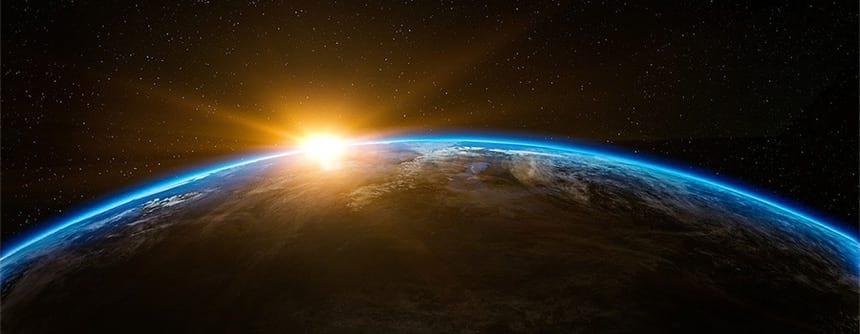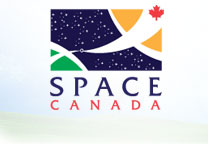The International Space Solar Power Student Project Competition
 |
The International SSP Student Project Competition is a wordlwide student research and engineering research/paper competition which focuses on new, meaningful and credible student research projects in the broad field of Space Solar Power.
The competition is organized by SPACE Canada, the International Astronautical Federation (IAF) Power Committee, Commission III of the International Academy of Astronautics (IAA), the National Space Society (NSS) International Space Development Conference (ISDC) SSP Track, and the IAF Space Generation Advisory Council (SGAC). |
See results of the 2023-2024 competition
See results of the 2022-2023 competition
See results of the 2021-2022 competition
See results of the 2020-2021 competition
See results of the 2019-2020 competition
See results of the 2018-2019 competition
See results of the 2017-2018 competition
See results of the 2016-2017 competition |
The 2025 International Space Solar Power Student Competition
*** The deadline for abstract submission of 2025 project team proposals is April 30, 2025 ***
The 2025 International Space Solar Power Student Competition is a global, undergraduate and graduate level annual event presented by SPACE Canada, in partnership with the International Astronautical Federation (IAF) Power Committee, Commission III of the International Academy of Astronautics (IAA), the National Space Society (NSS) International Space Development Conference (ISDC) SSP Track, and the Space Generation Advisory Council (SGAC), is in its ninth year.
The competition will encompass multiple disciplines related to Space Solar Power technologies, including but not limited to:
Acceptable disciplines/fields for research projects include:
- architecture level system design activities, cost-benefit studies, environmental footprint studies, etc.;
- end-to-end energy concepts & technology (including wireless power transmission (WPT), solar power generation and distribution, etc.);
- structural systems, in-orbit assembly, controls and dynamics technology, and modeling of these considerations;
- flight and/or space transportation technology and engineering for the SPS (including Earth-to-orbit or in-space transportation and/or propulsion);
- ground systems and integration
In addition, acceptable cross-cutting topics of general interest include:
- the potential value of SPS in reaching goals to mitigate climate change issues; and,
- near-term demonstration of relevant SPS concepts and technology;
- mid-term demonstrations of relevant SPS concepts and technology (for example in low Earth orbit);
- space resources utilization for SPS;
- space policy, legal and regulatory considerations across all of the above (including international cooperation, spectrum management, space debris, etc.); and,
- financing concepts for SPS systems and development.
Abstracts can be submitted through the registration button below.
This year of this new competition will be staged this year in three rounds:
- Step 1: Initial proposals and selection of project teams to participate initially in the competition (circa end of April).
- Step 2: Presentations of initial project results by the chosen semi-finalists. For those able to travel, semi-finalists projects shall be presented in person at the International NSS Space Development Conference (ISDC), to be held this year during June 19-22, 2025 in Orlando, Florida. For those unable to travel due to restrictions, online presentation options will be arranged, for example using zoom.
- Step 3: Presentations of the finalists’ project results will be at the 76th International Astronautical Congress (IAC 2025) Space Power Symposium – this year to be held in September 29-October 3, 2025, in Sydney, Australia – followed by selection of a winner for the year for the Mark Hopkins Award. Again, it is expected that for those able to travel, finalist projects will be presented in person at the IAC 2025;
The following additional details are also announced:
- Up to six teams will be considered for selection as semi-finalists (Step 2 above) following which the Judges will select the finalists in this year’s competition.
- Support for travel to the ISDC in Orlando, Florida, USA will be provided for semi-finalist teams totaling up to USD $1,000 per team in expense reimbursement, with the actual amount to be determined based on the location at which the student team is based.
- Support for travel to the IAC 2025 will be provided for the finalist teams totaling up to $3,000 per team in expense reimbursement, with the actual amount to be determined based on the location at which the student team is based.
- For teams that are unable to attend events above due to travel restrictions, cash prizes will be awarded; these cash prizes will not exceed 50% of the travel support amount per team as shown above. Specific amounts will be determined on a case-by-case basis.
- IAC 2025 submitted papers and presentation slide decks from all teams will be posted on the SPACE Canada website to become part of the literature of space solar power for the dissemination of knowledge for the benefit of the public.
If you would like to receive more information about the updated 2025 SSP student competition, please contact us at: .
If you have any question about the acceptability of your prospective topics, feel free to contact us at:
For full details and rules guiding the Competition, see the 2025 announcement.
The deadline for abstract submission of 2025 project team proposals is April 30, 2025.
Please confirm that you wish to participate under the terms of the competition for 2025.

|
PRESS RELEASE
INTERNATIONAL SPACE SOLAR POWER STUDENT COMPETITION 2024 |
The need to advance the goals of STEM (science, technology, engineering & mathematics) education is especially important in encouraging the emergence of future generations of researchers, technologists, entrepreneurs and innovators in the space sector in general, and in particular in the special fields of expertise required for the successful exploration, development and eventual settlement of space. The critical topic of Space Solar Power (SSP) – harvesting solar energy in space affordably and delivering it to markets in space and on Earth – has been studied as a vision for Humanity’s future for almost 50 years. This topic has never been more important as Climate Change issues become increasingly clear and the need for energy in cis-Lunar space becomes critical. |
| If Space Solar Power – which is both critical to space development and settlement and an increasingly important option in efforts to mitigate Climate Change – is to become a reality, this must change. |
| SPACE Canada 1, the International Astronautical Federation (IAF) Power Committee, International Academy of Astronautics (IAA) Space Solar Power Permanent Committee, the National Space Society (NSS) International Space Development Conference (ISDC) SSP Track, and the Space Generation Advisory Council (SGAC) in a cooperative effort have organized an annual faculty-advised, student-conducted international research and engineering research/paper competition on the topic of Space Solar Power. 2
The early years of the Competition have been highly successful – involving many dozens of project proposals and multiple university / college participants and dozens of students; leading to original research studies that were presented at the annual IAF Power Symposia of the International Astronautical Congress (IAC) annually over the past several years. On the basis of these prior years, the participating organizations have decided to continue this effort with developing a dual track during 2022 to 2025 with a focus on development at the local student level, the social community level and the systems level. |
| This letter is the announcement of that competition. |
The following are additional details concerning the 2025 Competition:
- This will be the final year of an annual competition open to further intensification of research and development for teams that wish to join the second track as it develops through to 2025.
- The purpose of the competition is to engender new, meaningful and credible student research projects in the broad field of Space Solar Power, and to support the presentation of the best of the various projects in an international forum including explicit recognition of the best research with a formal prize. Each team will then be able to learn from the experience and the community contact during each annual event to improve on and develop their ideas and research in each succeeding year. Teams are strongly encouraged to review and seek out advice to protect any IP they intend to retain prior to submission or presentation as the rules on IP protection are complex and have different entry processes for each national jurisdiction. SPACE Canada is not responsible for the protection of any team IP at any stage of the contests.
- The International Space Solar Power Student Competition Prize for 2025 will have four parts: (a) reimbursed travel 3 and registration support for selected semi-finalist teams to attend the annual ISDC (see below); (b) a formal certificate of recognition for selected semi-finalist teams (as a team, and for each team member, including the faculty advisor); (c) reimbursed travel and registration support for up to three selected finalist teams to attend the annual IAC SSP Symposium (see below); (d) a formal certificate for the selected winning team(s) for the Mark Hopkins Award.
- The competition is open to participation by faculty-coached, student-implemented project team, including a faculty advisor, not fewer than two undergraduate students and potentially one or more graduate students from any accredited international college or university. A given project team may involve more than a single university in an integrated team; however, each team from any participating college or university must include not less than two undergraduate students and one faculty advisor. All students must be aged 35 years or under at the time of the IAC 2025.
- The competition will involve three stages: (1) registration and proposal / abstract submission by proposing teams; (2) following selection of semi-finalists by Competition Judges, preliminary presentation of interim results at the annual NSS International Space Development Conference being held during June 19-22, 2025 in Orlando, Florida, USA (see https://isdc.nss.org) and (3) following selection of finalist teams, presentation (with a formal technical paper) of up to three best projects at the IAF Power Committee Solar Power Satellite (SPS) Session at the annual International Astronautical Congress (IAC), to be held in September 29-October 3, 2025, in Sydney, Australia (https://iac2025.org).
- Semi-finalists in the annual competition will be chosen by an independent review process based on submitted abstracts and draft presentation materials; these will be provided with a fixed level of financial support for their attendance and presentation of interim results at the annual ISDC SSP Track. (A team participating in the ISDC must send to the Conference not less than one member of the student team and one faculty advisor; however otherwise the decision as to who should participate and how the funds should be distributed among team members to meet travel and registration costs will be flexible.) If a team cannot attend the ISDC due to travel restrictions, provisions will be made for an online presentation, for example via zoom.
- Finalists in the annual competition will be chosen by an independent review process based on the presentations made at the annual ISDC SSP Track, and updated draft research presentation results. In the event that no project teams are adjudged to have achieved a sufficiently high level of technical accomplishment in a given year, no award will be made during that year.
- The chosen winner(s) will be provided with a fixed level of financial support for their attendance and presentation of interim results at the annual IAC SPS Symposium. A formal paper is required, and must be submitted to the IAC according to the rules of the conference. Participation in the IAC must comprise not less than one student team member and one faculty advisor; however otherwise the decision as to who should participate and how the funds should be distributed among team members to meet travel and registration costs will be flexible. If a team cannot attend the ISDC due to travel restrictions, provisions will be made for an online presentation, for example via zoom.
- In order to be eligible, members of each competing team (as described elsewhere) must generally be available and able to attend and present at the ISDC (semi-finalist) and the IAC (finalist). However, if a team cannot attend the ISDC due to travel restrictions, provisions will be made for an online presentation, for example via zoom.
- Teams accepted are allowed to apply to the second track, which is planned as a four year developmental pathway to taking the Teams concept idea forward through development to a point where it could potentially become a startup Space Solar Power business. The Teams that wish to participate will be evaluated by an Accelerator which is being set up for this purpose and will receive further and more in depth advice and assistance toward this longer term goal.
- The first deadline for participation in the 2025 competition is development and submission of an abstract for a proposed student research project by not later than April 30, 2025.
|
| For additional information, please download the competition announcement provided here: Download PDF. |
| We look forward to participation by students and faculty from accredited colleges and universities globally in this year’s competition. If you would like to indicate interest in participating and to obtain additional information, please contact us at the email address provided: . |
|
|





